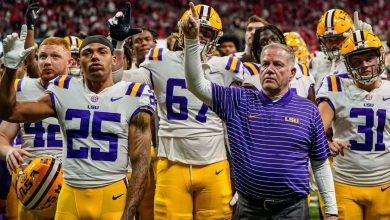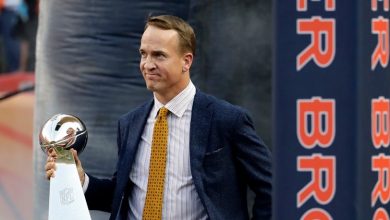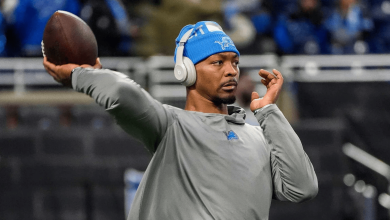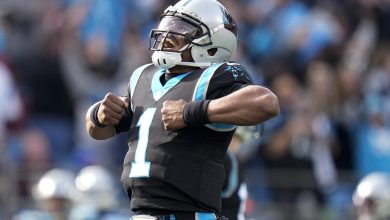Superpowers: What the present-day Cowboys require that the 1971 Cowboys had
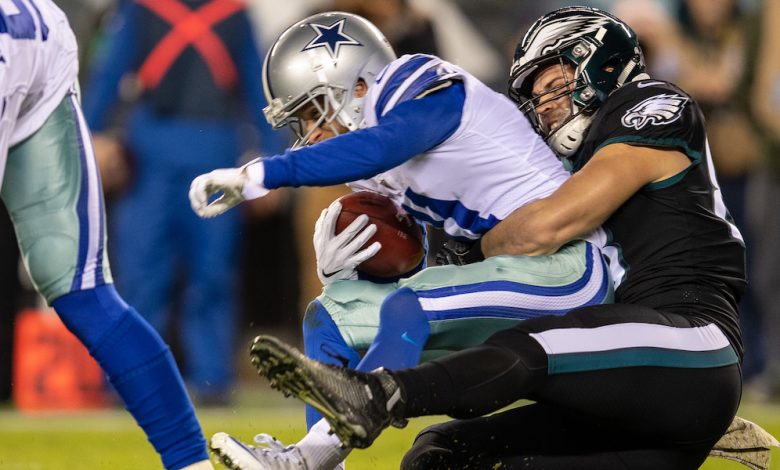
The Dallas Cowboys are a franchise rich in history, filled with legendary players, iconic coaches, and unforgettable moments. Since their inception in 1960, the Cowboys have garnered a reputation for being one of the most successful and storied teams in the NFL. One of the team’s most iconic and successful seasons was in 1971, when they won their first Super Bowl. This victory solidified their place in the annals of NFL history, and to this day, the 1971 Cowboys remain a gold standard for the franchise. The team was built on a foundation of grit, discipline, and outstanding football intelligence, which allowed them to dominate throughout the season and ultimately lift the Lombardi Trophy.
Fast forward to the present day, and the Dallas Cowboys have found themselves in a quest to reclaim their past glory. Despite having many strong seasons and contending for playoff spots, the team has not been able to capture a Super Bowl championship since 1995. So what exactly is missing from the current Cowboys team that the 1971 squad possessed? While the game has evolved and the NFL landscape has shifted, there are several qualities that the Cowboys of the past exemplified, and these “superpowers” are what the present-day Cowboys must tap into to achieve their ultimate goal of another championship.
This article will explore the qualities, mindset, and attributes of the 1971 Cowboys that the current roster could learn from and apply to their own game. These qualities include leadership, consistency, discipline, teamwork, and a dominating defense—each of which contributed to the 1971 team’s success and could be the key to the Cowboys’ future.
1. Leadership: The Backbone of the 1971 Cowboys
One of the defining features of the 1971 Cowboys was their remarkable leadership. Head coach Tom Landry was a visionary who molded the team into a well-disciplined, efficient unit. Known for his quiet and methodical approach, Landry was a genius when it came to strategy and player development. His leadership laid the foundation for the team’s success, and it was his ability to make key decisions at crucial moments that allowed the Cowboys to become champions.
The 1971 Cowboys also had leaders within the locker room—players who could take charge both on and off the field. Quarterback Roger Staubach was one of the greatest leaders in NFL history. A Navy veteran who had already proven his ability to lead under intense pressure, Staubach brought an unmatched level of poise and confidence to the team. His ability to lead by example, communicate effectively, and maintain calm in high-pressure situations made him the glue that held the Cowboys together.
In contrast, the present-day Cowboys have struggled at times with leadership, particularly in the postseason. While quarterback Dak Prescott has certainly grown into a capable leader, the team has lacked the on-field leadership presence that Staubach embodied. Additionally, leadership in the coaching staff has been questioned over the years, as various coaching staffs have struggled to provide the consistency and direction that the 1971 squad had under Tom Landry.
What the Cowboys of today need to regain is that strong, steady leadership at all levels of the team—from the head coach to the quarterback and throughout the locker room. Dak Prescott, for all his talent, must continue to evolve as a vocal and emotional leader, commanding respect both from his teammates and the fans. The coaching staff, led by Mike McCarthy, must also demonstrate the poise and adaptability necessary to inspire a championship-caliber team. Great leadership is about more than just managing talent; it’s about setting a tone and instilling confidence, two things that the 1971 Cowboys had in spades.
2. Consistency: Dominating Week After Week
The 1971 Cowboys were a model of consistency. While they didn’t necessarily dominate every game in a flashy or overwhelming way, they consistently played at a high level and were able to win tough games in a variety of ways. Their ability to execute their game plan week in and week out was a major factor in their success.
In 1971, the Cowboys had one of the most balanced and efficient offenses in the NFL. Roger Staubach’s leadership and playmaking ability, coupled with a strong running game featuring Walt Garrison and Duane Thomas, provided a potent offensive attack. On the defensive side of the ball, they were just as reliable, anchored by a defensive line that could control the line of scrimmage and a secondary that was excellent at forcing turnovers.
In comparison, the present-day Cowboys have often shown flashes of brilliance but have lacked the consistency that the 1971 team had. In recent years, the Cowboys have been known for having high-scoring games and dominating performances, but they have also been prone to disappointing losses. The inability to perform consistently on a week-to-week basis has been a recurring issue for the Cowboys in recent seasons, particularly in critical games and during the playoffs.
The 1971 Cowboys didn’t need to blow out every opponent or put up gaudy statistics; instead, they simply played solid, consistent football. The present-day Cowboys need to develop a similar level of consistency if they hope to make a deep playoff run. That means being able to play fundamentally sound football every week—whether it’s on offense, defense, or special teams—and executing their game plan to near perfection.
3. Discipline: Playing by the Rules and Keeping Composure
One of the hallmarks of the 1971 Cowboys was their discipline. Tom Landry’s emphasis on execution and following the game plan was ingrained in the team’s mindset, and the players bought into this philosophy wholeheartedly. The Cowboys were known for their attention to detail and their ability to stay within themselves, even when the pressure mounted. This discipline was evident in their ability to stay penalty-free in crucial moments and to execute their game plan without unnecessary mistakes.
Discipline on the field often translates to fewer mistakes, fewer turnovers, and fewer penalties. The 1971 Cowboys played smart football, which was a major reason they were able to win so many tight games. Their ability to execute a game plan without losing focus was a significant advantage, especially in high-stress playoff games.
For the present-day Cowboys, discipline remains an area where improvements can be made. While the team has the talent to compete with the best in the league, they have often struggled with penalties and mental lapses at inopportune times. Whether it’s a critical holding call, a missed assignment, or a turnover in a key moment, these mistakes can derail a team’s chances of winning.
If the Cowboys hope to return to their former glory, they must develop the kind of mental discipline that the 1971 team had. This means focusing on the details and executing the game plan without mistakes, no matter how high the stakes are. Only through this kind of focus can the Cowboys hope to compete at the highest level and achieve sustained success.
4. Teamwork: A Cohesive Unit That Works Together
Perhaps the most significant attribute of the 1971 Cowboys was their ability to play as a team. While they had many individual stars—Roger Staubach, Bob Lilly, Harvey Martin, and others—their success was built on their collective ability to play together as one cohesive unit. Every player understood their role and was willing to sacrifice personal glory for the good of the team.
On defense, the Cowboys had a formidable “Doomsday Defense” that was able to shut down opposing offenses, often forcing turnovers and making critical stops in key moments. On offense, the team’s unselfishness allowed them to execute a balanced attack that could beat opponents in a variety of ways. There was no ego or individualism; it was all about working together to achieve the ultimate goal.
The present-day Cowboys, while certainly talented, have sometimes struggled to play as a cohesive unit. Whether it’s the offense failing to execute in key moments or the defense not living up to expectations, there have been times when individual players haven’t come together as a collective force. This is not to say that the Cowboys lack talent or effort, but rather that they must find ways to unite and operate as a well-oiled machine, much like the 1971 team did.
The current Cowboys need to cultivate an atmosphere of selflessness and unity. It’s not enough to rely on a few standout players to carry the team; the entire roster must be committed to the cause and work together to achieve victory. The 1971 Cowboys showed that when everyone buys into the team concept, the results can be spectacular.
5. A Dominant Defense: The Foundation of Championship Football
The 1971 Cowboys were defined by their defense. The “Doomsday Defense,” as it was known, was one of the most formidable units in NFL history. Featuring future Hall of Famers like Bob Lilly, Chuck Howley, and Mel Renfro, the Cowboys’ defense was not just good—it was suffocating. The defense consistently put pressure on quarterbacks, forced turnovers, and made key stops in the most critical moments of the game.
Today’s Cowboys have made strides in rebuilding a strong defense, and players like Micah Parsons have emerged as standout performers. However, the current defense is still a work in progress. While Parsons is one of the most exciting young players in the league, the Cowboys must continue to build a defense that can control the game, create turnovers, and consistently get stops when it matters most.
A dominant defense is the backbone of any championship team, and if the Cowboys hope to lift the Lombardi Trophy again, their defense must be as feared and effective as it was in 1971.
The Road Ahead for the Dallas Cowboys
The 1971 Cowboys were a team built on leadership, consistency, discipline, teamwork, and a dominant defense. They were a cohesive unit that executed their game plan to perfection and worked together to achieve greatness. While the game has evolved and the NFL landscape has changed, many of the qualities that made the 1971 Cowboys so successful are still relevant today.
The present-day Cowboys must learn from these qualities and apply them to their own game. With the right leadership, consistency, discipline, teamwork, and a dominant defense, the Cowboys have the potential to return to championship contention. While it may take time, the legacy of the 1971 Cowboys provides a blueprint for how to achieve greatness. By recapturing these superpowers, the Cowboys can once again reach the pinnacle of the NFL and bring home another Super Bowl title.



